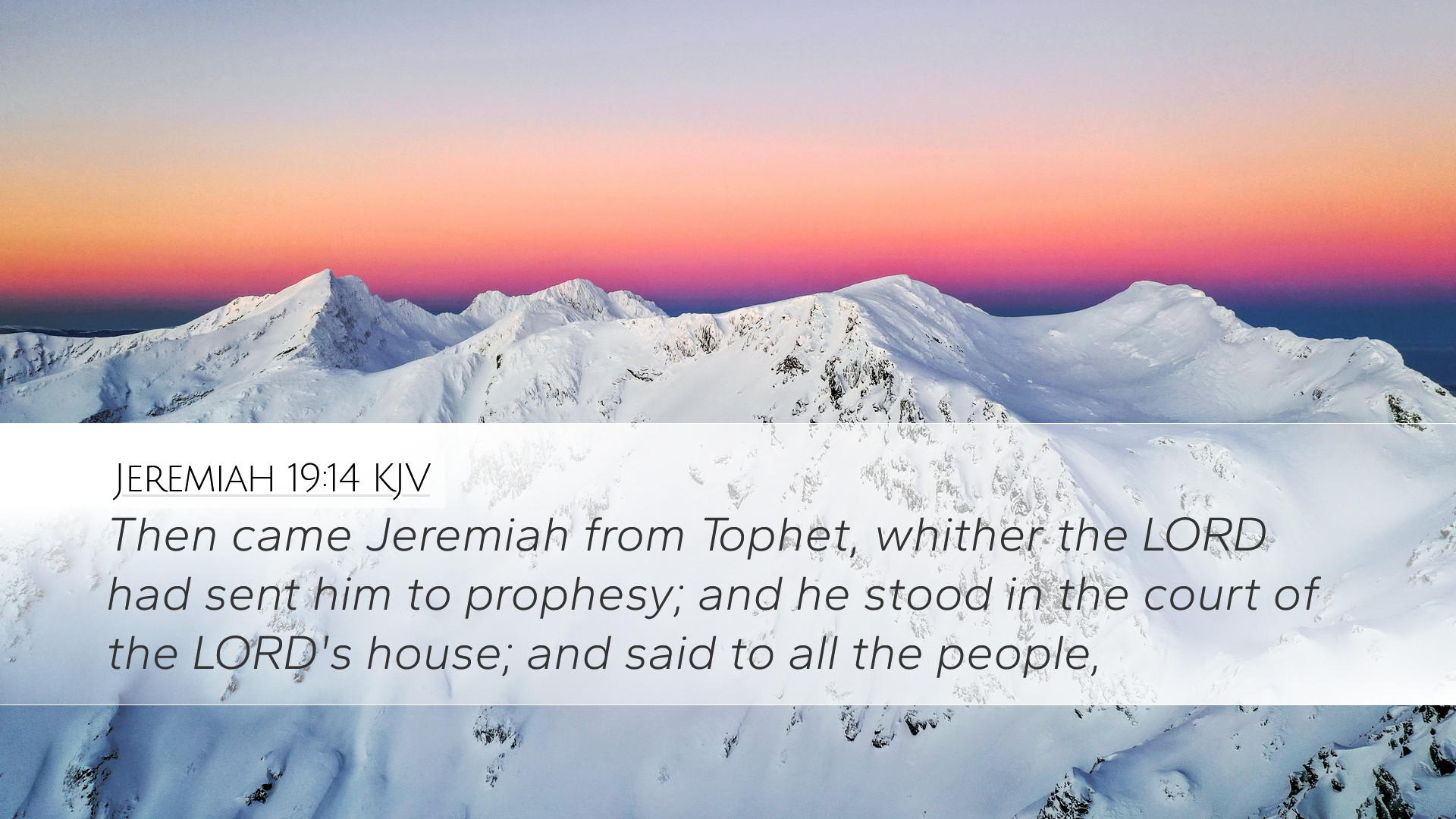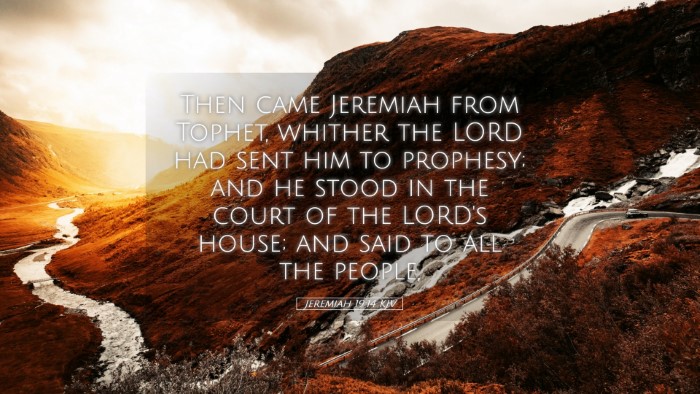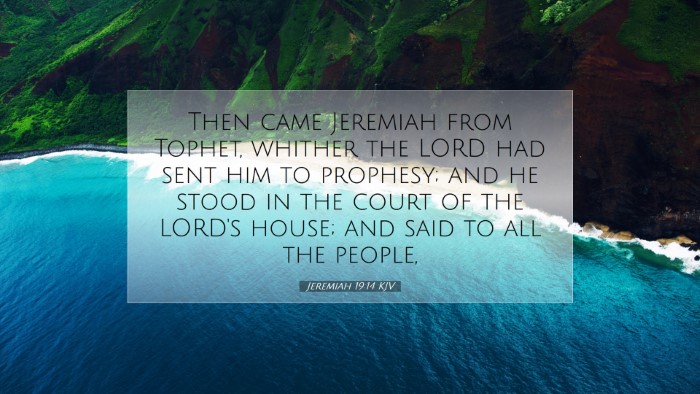Commentary on Jeremiah 19:14
Bible Verse: "Then came Jeremiah from Tophet, whither the LORD had sent him to prophesy; and he stood in the court of the LORD'S house; and said to all the people."
Introduction
This verse marks a pivotal moment in the prophetic ministry of Jeremiah, highlighting his role as a mouthpiece for God's message during a time of great moral and spiritual decline within the nation of Judah. It reflects the context of his prophetic calling and the severe warnings he conveyed regarding impending judgment.
Contextual Background
The events leading up to Jeremiah 19:14 illustrate a time of crisis for the people of Judah. The prophet had just returned from Tophet, a location associated with pagan worship and the sacrificial rites of the god Molech, where children were offered in burnt sacrifices. This was a direct violation of God's instructions, and Jeremiah's message serves as a striking contrast to the idolatrous practices prevalent in the land.
Historical Context
- The Israelites had repeatedly turned away from Yahweh, embracing practices that were abhorrent to Him.
- Jeremiah's prophetic ministry spans the last days of Judah prior to the Babylonian exile, a time characterized by moral decay and social injustice.
Analysis of Key Themes
1. Divine Judgment
Albert Barnes notes that Jeremiah's proclamation serves as a warning of the divine judgment looming over Jerusalem. The return from Tophet symbolizes a confrontation with the consequences of sin and the need for repentance.
2. The Role of the Prophet
Matthew Henry emphasizes the courage and steadfastness of Jeremiah in delivering God's message amidst public opposition. He underscores that true prophets often face ridicule but remain committed to their divine calling.
3. Spiritual Blindness of the People
Adam Clarke points to the spiritual insensitivity of the people, who remain unresponsive to the severe warnings of their impending doom. This highlights a recurring theme in Scripture where God’s people become dull of hearing.
Lessons for Today
As we reflect on Jeremiah 19:14, several lessons emerge that are relevant for contemporary believers, students of the Word, and theologians:
- The Urgency of Prophetic Voices: Just as Jeremiah was sent to proclaim a sobering message, today's church is called to address social injustices and moral failures within society.
- The Cost of Discipleship: The prophets often suffered for their faithfulness. Pastors and leaders must be prepared to face opposition while standing firm in the truth.
- Awareness of Idolatry: The presence of idolatry—whether in the form of materialism, nationalism, or modern secular beliefs—demands recognition and confrontation within the church.
Conclusion
The message delivered by Jeremiah in 19:14 is one that reverberates through the ages. It reminds us of the critical need for repentance, the realities of divine judgment, and the necessity of faithful proclamation of God's Word. The interplay of judgment and grace through the prophetic ministry exemplifies the heart of God desiring restoration rather than destruction. As scholars, pastors, and students of God's Word, engaging with these themes invites us to examine our own faithfulness and the implications of our spiritual lives in the contemporary context.


